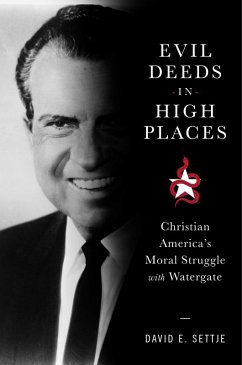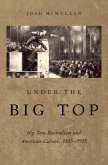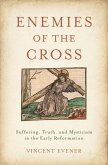Highlights Watergate as a critical turning point in Christian engagement in US politics
The Watergate scandal was one of the most infamous events in American democratic history. Faith in the government plummeted, leaving the nation feeling betrayed and unsure who could be trusted anymore. In Evil Deeds in High Places, David E. Settje examines how Christian institutions reacted to this moral and ethical collapse, and the ways in which they chose to assert their moral authority.
Settje argues that Watergate was a turning point for spurring Christian engagement with politics. While American Christians had certainly already been active in the public sphere, these events motivated a more urgent engagement in response, and served to pave the way for conservatives to push more fully into political power.
Historians have carefully analyzed the judicial, media, congressional, and presidential actions surrounding Watergate, but there has been very little consideration of popular reactions of Americans across the political spectrum. Though this book does not aspire to offer a comprehensive picture of America's citizenry, by examining the variety of Protestant Christian experiences-those more conservative, those more liberal, and those in between-and by incorporating analyses of both white and black Christian reactions, it captures a significant swath of the American population at the time, providing one of the only studies to examine how everyday Americans viewed the events of Watergate.
Grasping the dynamics of Christian responses to Watergate enables us to comprehend more completely that volatile moment in US history, and provides important context to make sense of reactions to our more recent political turmoil.
The Watergate scandal was one of the most infamous events in American democratic history. Faith in the government plummeted, leaving the nation feeling betrayed and unsure who could be trusted anymore. In Evil Deeds in High Places, David E. Settje examines how Christian institutions reacted to this moral and ethical collapse, and the ways in which they chose to assert their moral authority.
Settje argues that Watergate was a turning point for spurring Christian engagement with politics. While American Christians had certainly already been active in the public sphere, these events motivated a more urgent engagement in response, and served to pave the way for conservatives to push more fully into political power.
Historians have carefully analyzed the judicial, media, congressional, and presidential actions surrounding Watergate, but there has been very little consideration of popular reactions of Americans across the political spectrum. Though this book does not aspire to offer a comprehensive picture of America's citizenry, by examining the variety of Protestant Christian experiences-those more conservative, those more liberal, and those in between-and by incorporating analyses of both white and black Christian reactions, it captures a significant swath of the American population at the time, providing one of the only studies to examine how everyday Americans viewed the events of Watergate.
Grasping the dynamics of Christian responses to Watergate enables us to comprehend more completely that volatile moment in US history, and provides important context to make sense of reactions to our more recent political turmoil.
Dieser Download kann aus rechtlichen Gründen nur mit Rechnungsadresse in A, D ausgeliefert werden.









